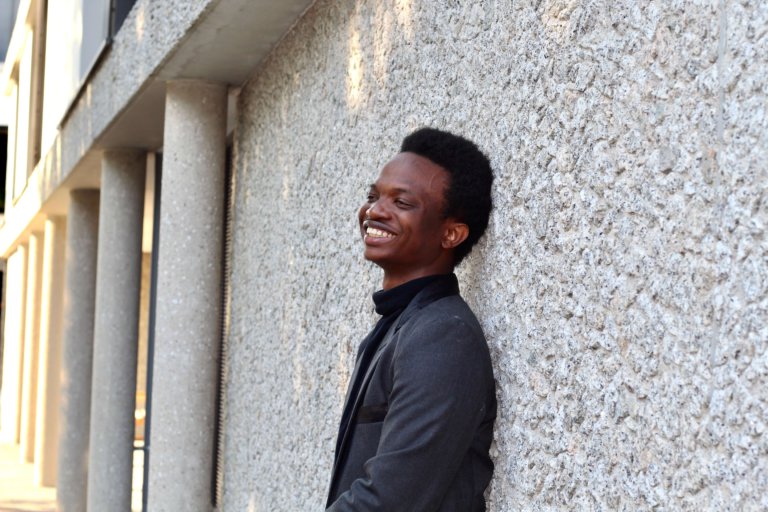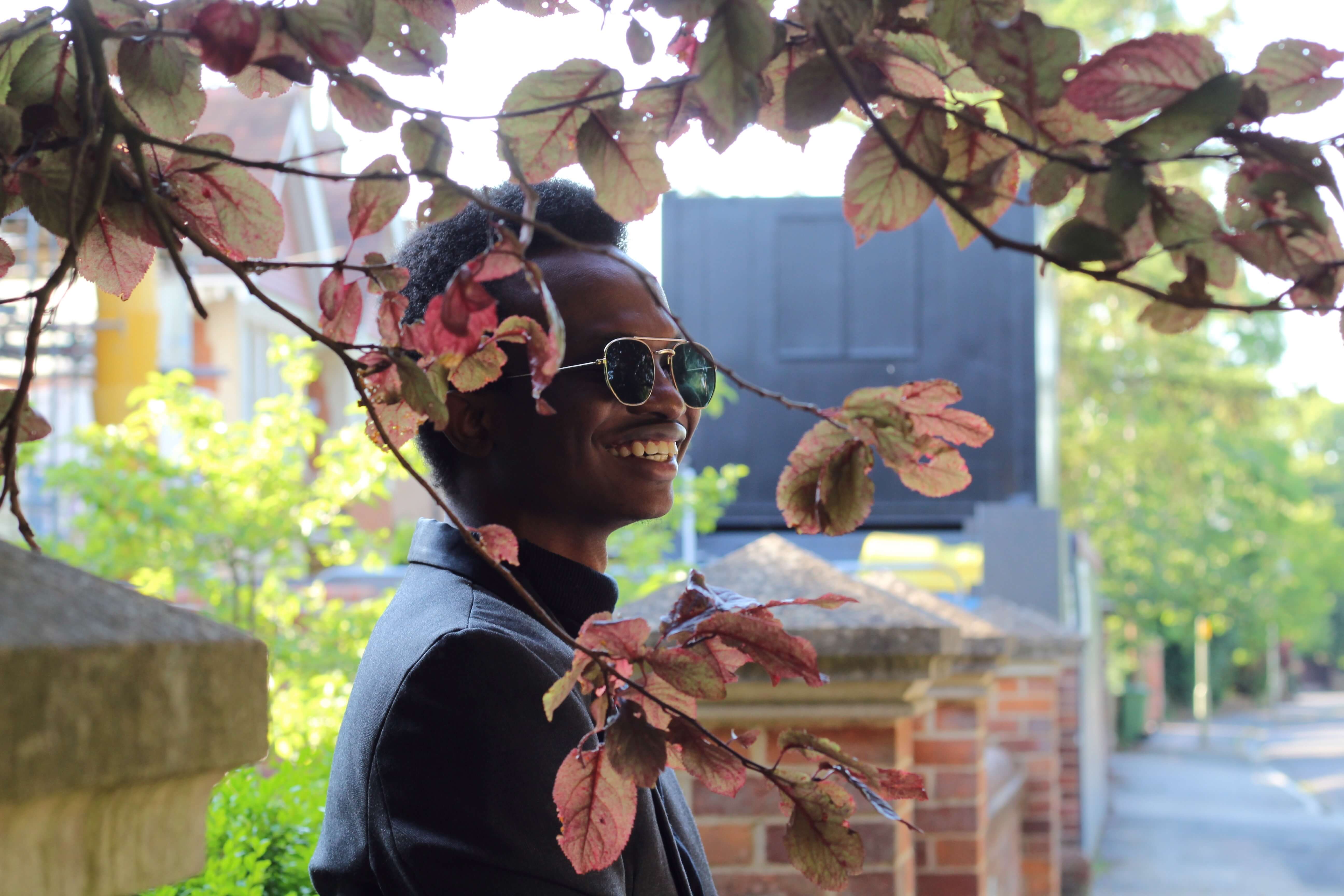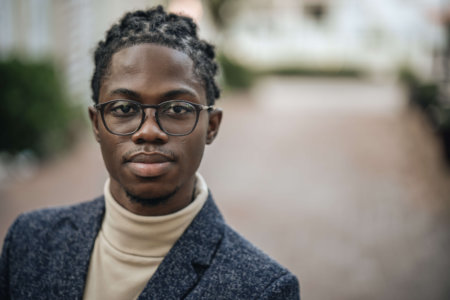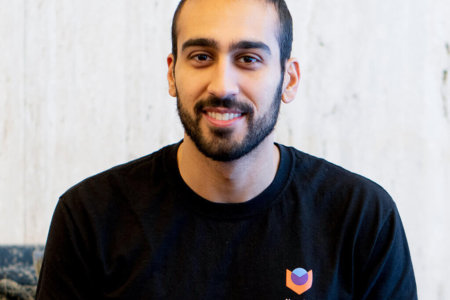
Not everyone can say they have more than 40 academic awards — including the Rare Rising Star Award from 2020 — a medical degree, a Rhodes scholarship and an NGO. Dr. Toluwalase Awoyemi, 28, can.
Currently, he’s in pursuit of his DPhil in Women and Reproductive Health (molecular and computational biology) at Oxford University to understand why some babies are born prematurely and why some pregnant women develop hypertension. When he’s not in classes or labs, he can be found working with an outreach programme at Christ Church and UNIQ+, helping to boost the representation of ethnic minority students at Oxford University
Dr. Awoyemi grew up in Nigeria and studied medicine at the University of Ibadan Medical School. During his time there, he was involved in CHECK Medical Missions, taught at the Medical School and co-founded an NGO — The Ganglion Initiative (TGI). TGI aims to improve university admissions services at public secondary schools in Nigeria — today, it is offering scholarships and coordinating back-to-school programmes for public secondary school students in Nigeria to help reduce the spread of COVID-19.
Below we talk to this accomplished young man about his background in medicine, what he’s currently doing and his future plans:
Where did your passion for medicine stem from?
My family, especially my father who has always been the greatest influence and one of the best diagnosticians I have come across. I fondly remember how I would spend some of my evenings when I was around five, at my father’s private clinic, watching patients crying in the consulting room. A few minutes later, they would walk out with a smile.
I always imagined I would become the man — my father — in the room who was capable of treating people holistically and making problems go away. Even though I wanted to work hard, I began in the complete opposite: being lazy.
A lot of other people have played important roles besides my father. People I have met at various phases of my life: primary, secondary and medical school. However, my “love” for medicine probably arose when I participated in rural medical outreaches to underserved areas as a student. I witnessed first-hand the implications of health disparities and even how small, insignificant medical interventions had a profound ripple effect on the locals.

He co-founded The Ganglion Initiative which aims to improve university admissions services at public secondary schools in Nigeria. Source: Dr. Toluwalase Awoyemi
What made you choose to pursue your DPhil in Women and Reproductive Health at Oxford University?
When I was working on an internship at the University of Ibadan, one of the foremost tertiary institutions in Africa, I observed how most of the diseases that affect pregnant women and newborns had little or no effective treatment.
Every other day while on call at the labour ward, women with preeclampsia (a serious disease where pregnant women have elevated blood pressure and organ damage) would be admitted in severe distress. This was while we battled to stabilise them and their baby, where most days we’d be successful and some days we’d have to deliver bad news.
To worsen this, research into women’s health is largely underfunded globabally, especially in Africa with more high-profile areas of medicine attracting researchers. In fact, a lot of people to this day, tell me I am wasting my talents in researching women’s health and that I should turn to studying the brain or the heart.
The department of Women’s and Reproductive Health at Oxford University is the best in the world of research and perhaps other areas same as the division of medical sciences. This naturally had a strong appeal to me as a young medical graduate. I am extremely honoured to be conducting my research and would love to give a shout-out to all the funding bodies that are making my studying here a reality, especially the Rhodes Trust.
Among the many academic awards you’ve won, which was the most outstanding to you?
This is a tough question. Every award I have won is important to me but if I had to choose, it would be the Brain of Medical School award at the Ibadan College of Medicine. This award is important because of the calibre of people who had won the award before me and has a lot of power and weight beneath it. Prior to winning, I had been nominated twice for derivatives of the award but was a runner-up on both occasions.
What else do you think could be done to reduce the gap for Black representation at top-tier higher education institutions in the UK?
As you know, this is an area a lot of people (including myself) are passionate about. The underrepresented demographic should actively seek out and guide, rather than wait to be contacted.
Although tedious, the impact of this is astronomical. Oftentimes, I have received messages from people who later confess to being shocked that I responded back to their message or scheduled an appointment with them — but I do this for everyone.
Personally, my message box on all social media handles is open to people. I try to respond to as many messages I can so I can motivate and challenge people. If I am unable to review application packages, I apologise and state the reason. I do so because I have also been in the position of not getting a response from a potential mentor and I don’t want anyone else to feel the same way.
Additionally, it’s easier for young people to dream if they see someone like them already in these spaces. We owe it to the younger generations to continue to push the boundaries and redefine our limits. My points today focus on what we can do as individuals and groups alongside stakeholders and governments.

“My family, especially my father who has always been the greatest influence and one of the best diagnosticians I have come across,” Dr. Awoyemi says.
Tell us more about TGI. What are some of the challenges you faced during COVID-19?
The Ganglion Initiative (TGI) is our attempt to practise what we preach. Alongside my co-founders, who were all at a very young age with little money, we decided to take the bull by the horn and be the driver of change in our immediate society.
We built this wonderful organisation from ground zero to what it is now. TGI is involved in providing leadership, mentorship and uni admission services to public and federally or state-funded secondary school students. This is so they can compete with their peers who attend private schools.
We work with over 15 schools in Nigeria and hold yearly intercontinental free webinars about admissions into top schools in the world. The pandemic stirred up a few challenges, but like everyone else has had to, we’ve been able to adapt.
We moved our mentorship services to a phone-based and remote mentorship. Here, the mentors speak with secondary and uni students via phone calls. We incorporated social distancing measures in our career and leadership workshops.
We also provide masks and hand sanitation units to select public secondary schools. Thus far, we’ve impacted the lives of over 8000 students. TGI is actively looking for people to join our team as interns, so feel free to reach out.
Do you think it would have made a difference if you studied at a local institution?
Honestly, few institutions in the world and in Nigeria can teach the skills I have been learning at the University of Oxford. I am certain it would have made a difference if I had pursued my DPhil at a local institution.
That being said, institutions also teach different skills. My alma mater taught me resilience, persistence and independence — three attributes that assisted my smooth transition to a DPhil at the best uni in Oxford without a master’s degree before this.
What has been your most memorable class so far?
I don’t take structured classes as my degree gives me complete independence of thought and research under supervisory guidance. However, every moment I spend optimising, brainstorming and troubleshooting experiments with my colleagues and senior researchers, is very memorable.
Do you have any fond memories with teachers that stood out for you?
Secret Santa games, attending dinners and parties after stressful days at the lab, and impromptu Zoom calls with my supervisors. Both of my supervisors are the most incredible people you can ever meet. They are constantly concerned about my career growth, mental health and wellbeing, even about non-academic matters.
For instance, when I had difficulties getting baking flour due to the shortage in the UK, my supervisors were able to help me out. They also actively search and connect me to global opportunities, so I am very fortunate to have the two of them by my side.
What are your academic goals in this course?
My goal is to wrap up my DPhil (PhD) as soon as I can and finish the research manuscripts that continuously haunt me while I sleep.
What do you plan to do after graduating?
Luckily, there is no further study in this programme except for gathering experience. However, the next step for me is residency and fellowship training in the speciality of my choice which is typically the path for medical doctors.
What’s one thing from home you miss and how do you substitute it?
My family but that could never be substituted. Other things I miss are my friends, the warmth, the food and the happiness of Nigerians. Similarly, difficult to replicate, I have been able to maintain contact with old friends and surround myself with new friends to learn about other cultures.
What advice do you have for international students looking to study abroad in the UK?
I would advise that you plan ahead. Opportunities favour the prepared mind. Similarly, reach out to people you think can be of help in a professional and courteous manner. Finally, keep an open mind and learn to understand the trends in the world and know what’s best for you. I enjoy speaking to groups of students and working with schools to help inform them about career paths and education abroad so feel free to reach out to me and discuss.
Find him on Instagram, Facebook, and Twitter.










